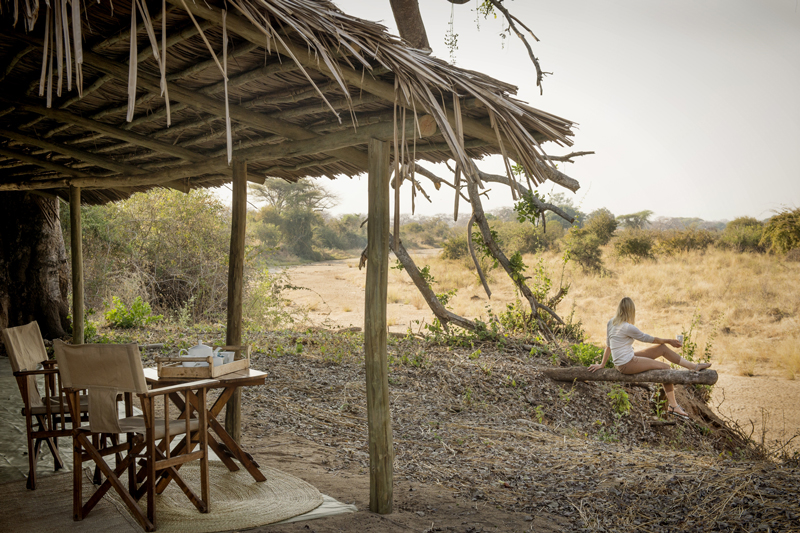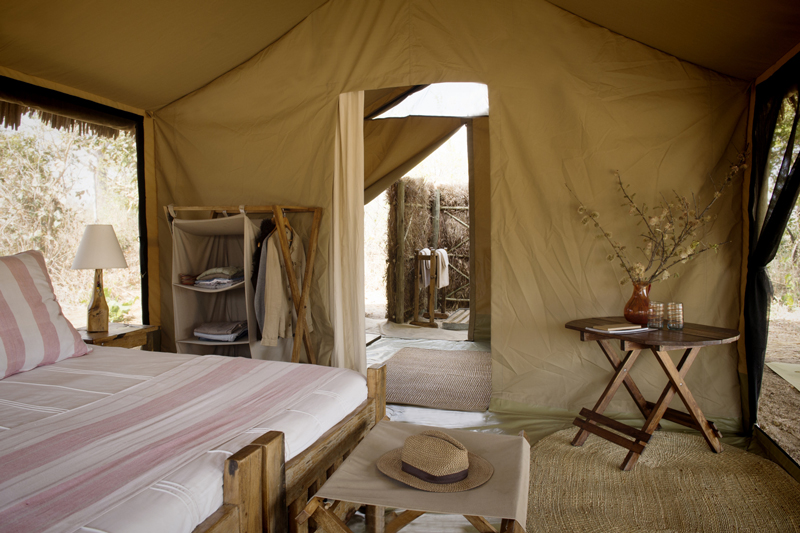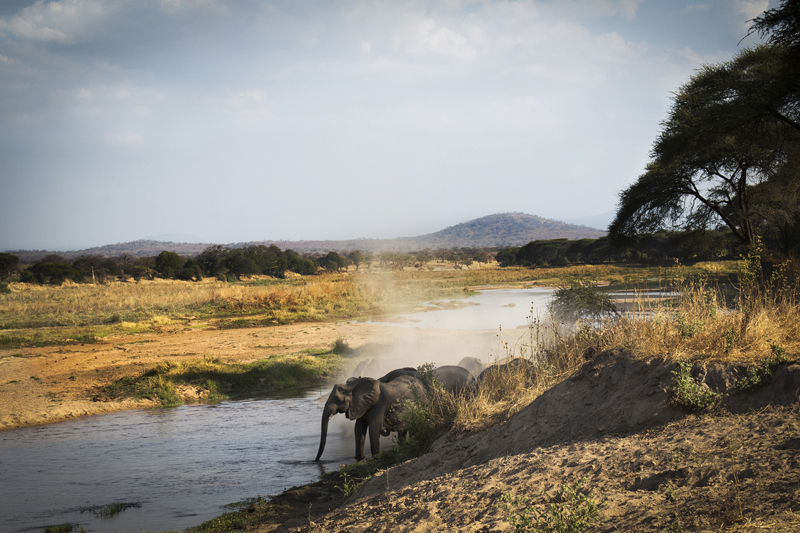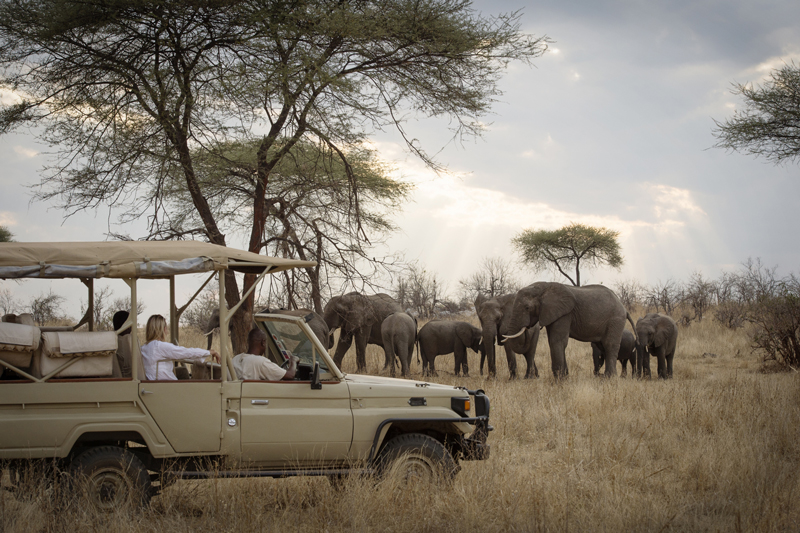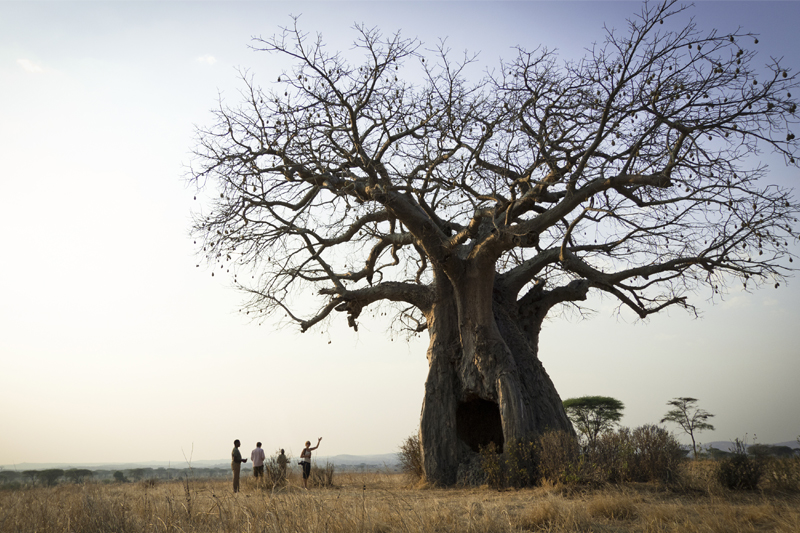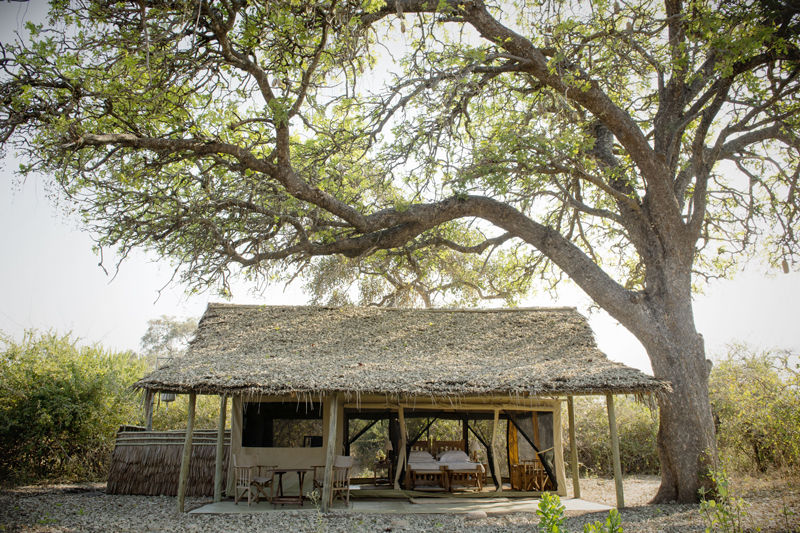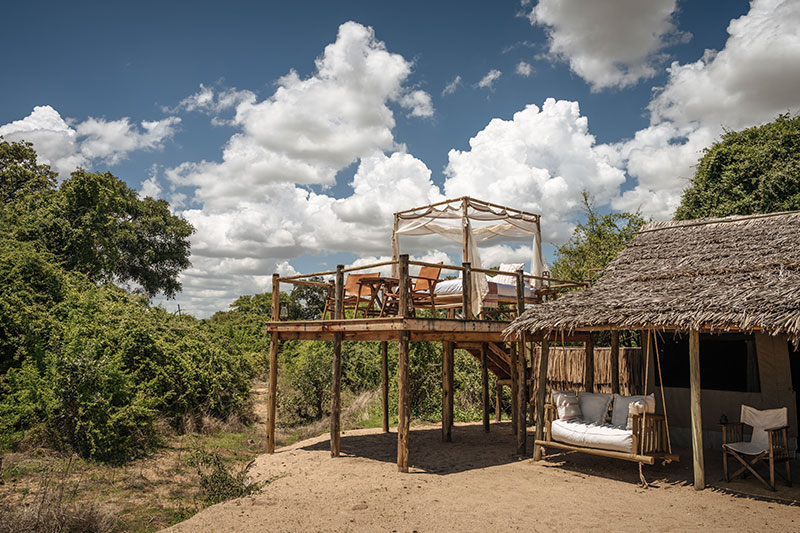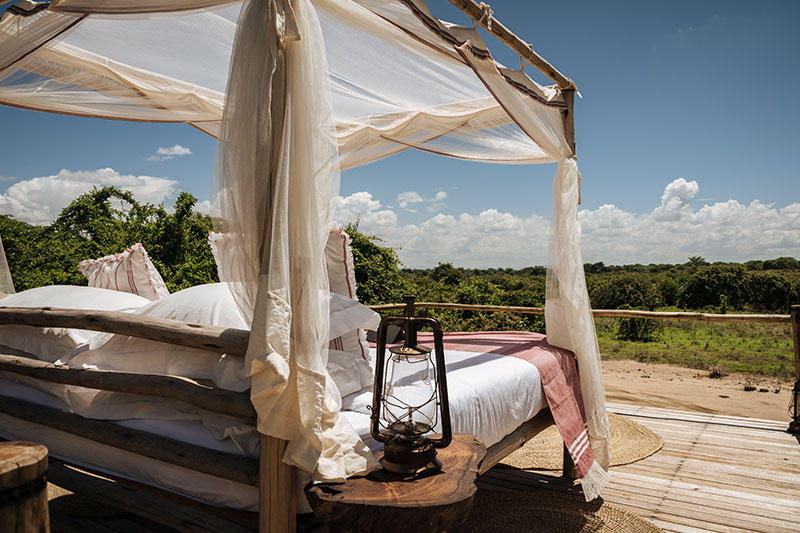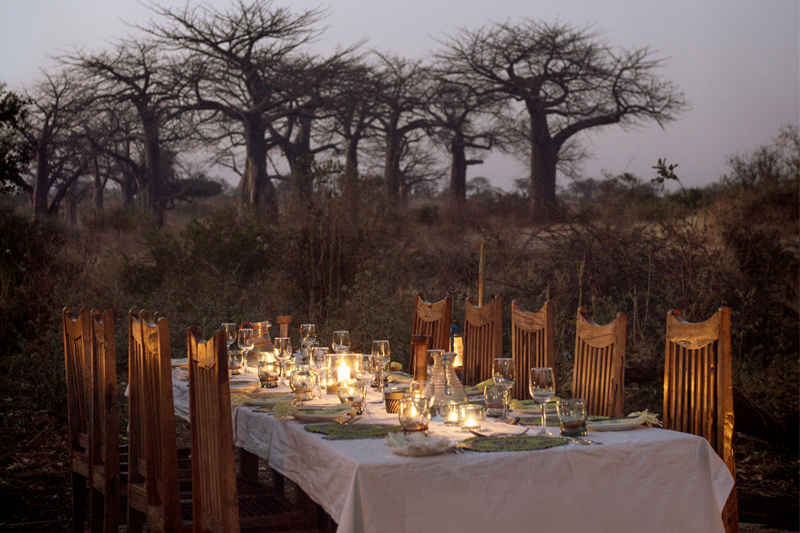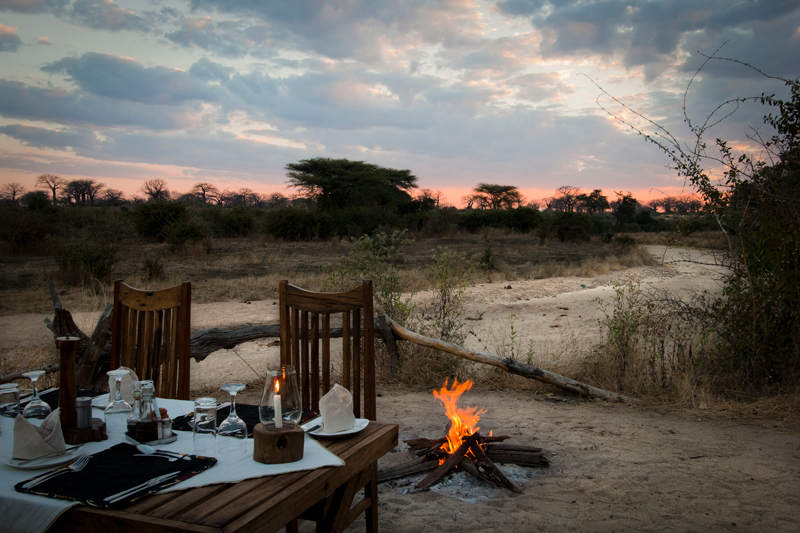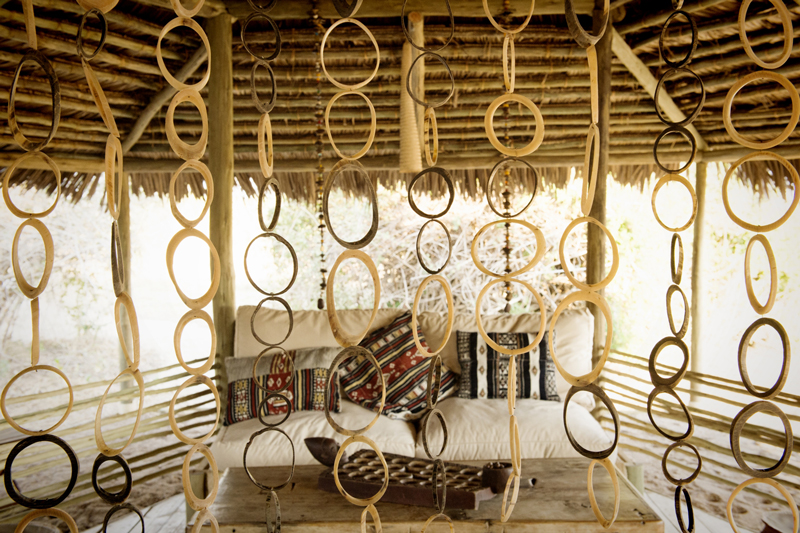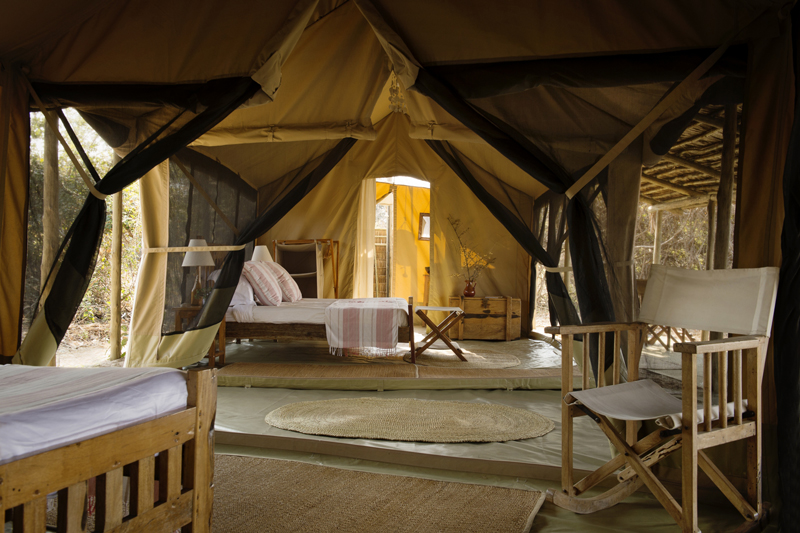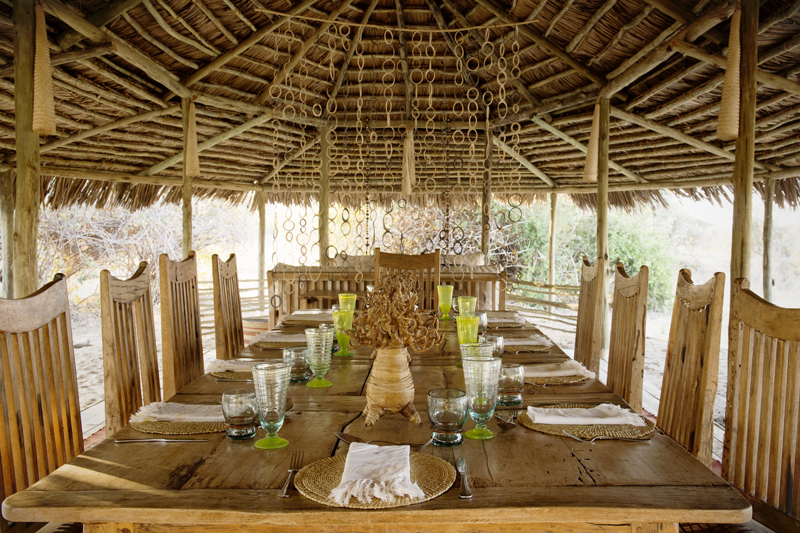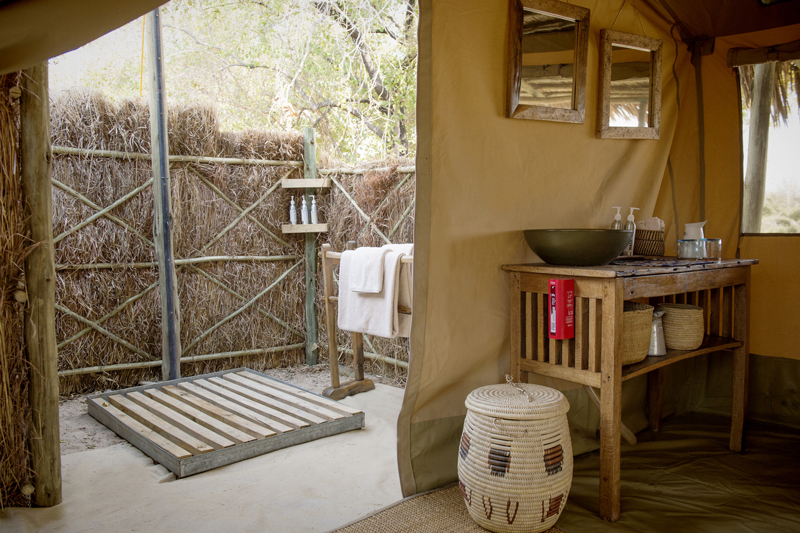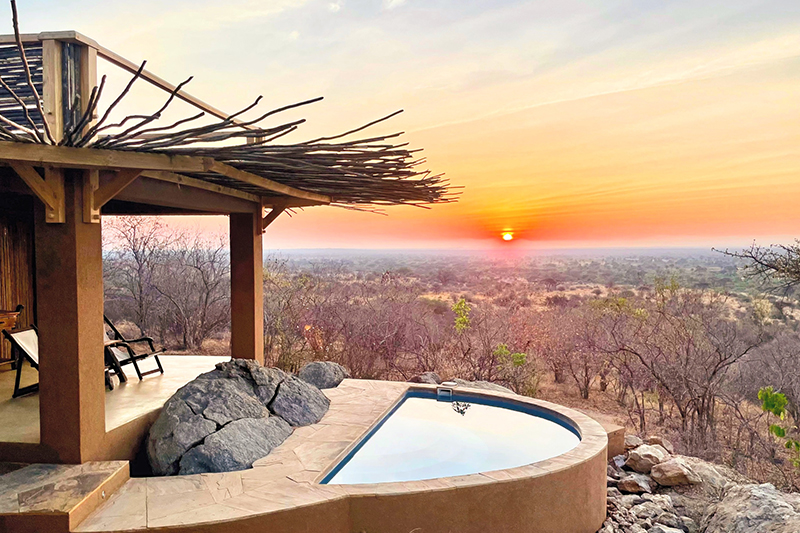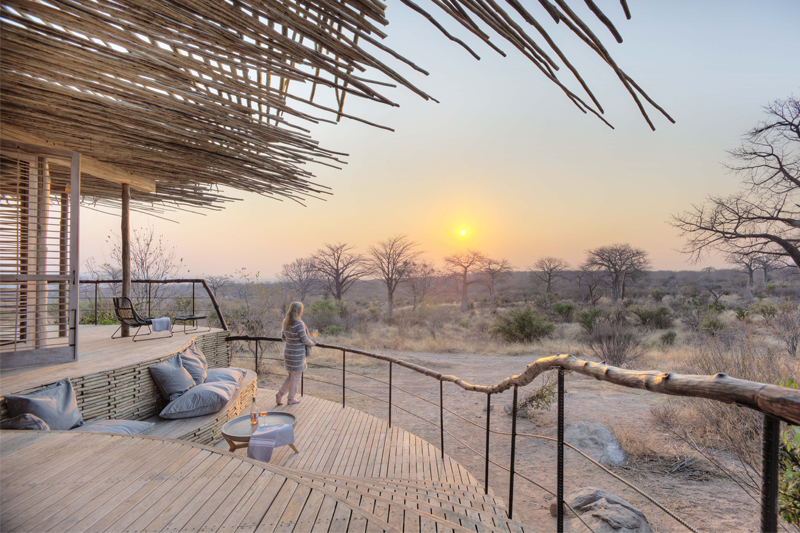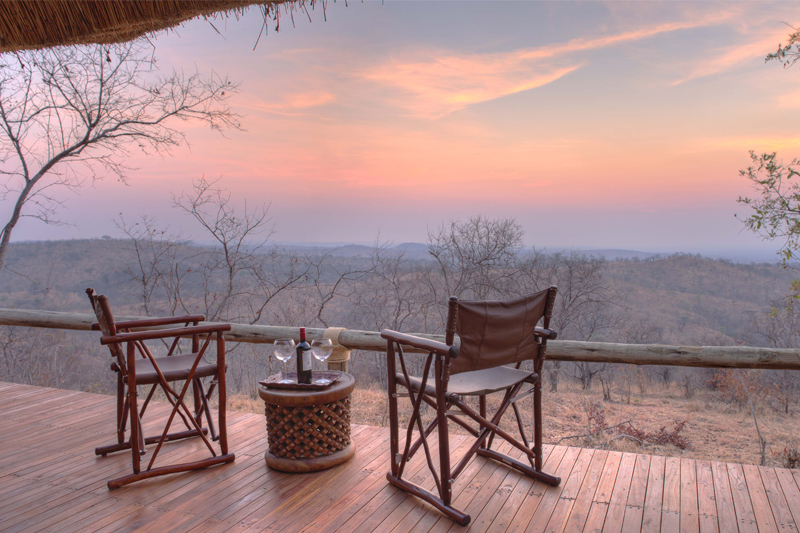Kigelia Ruaha
Kigelia Ruaha is an exclusive tented camp situated on the banks of the Ifaguru River in the eastern region of Ruaha National Park
Kigelia is an exclusive camp offering an authentic bush experience combined with good service and very comfortable tented accommodation. The camp has a tranquil location (you pass through incredible Baobab forests en route into camp) overlooking the Ifaguru River with good access to the game-rich Mwagusi River Valley and Ruaha River areas, as well as more exclusive areas to the east. Run by Nomad Tanzania, the camp offers a very friendly welcome with excellent guides and a fairly communal ambience. The camp will suit people prioritising a wilderness escape, personal hosting and a good game viewing experience, with the chance to walk and also undertake night drives (at extra cost).
Rooms
The camp is small and exclusive, catering for just 14 guests in six simple but comfortable safari tents including one family tent which consists of double and twin en suite tents side by side under Makuti thatch. Each tent is set on the ground, under a wide canvas awning, has a private verandah and consists of a spacious bedroom area with large mesh windows offering plenty of light within the tent and views of the bush outside. The en suite bathroom consists of a flush toilet and basin with large jug of water. Accessed via a zip, the bathroom has an open air bucket shower surrounded by a thatch wall. Each tent also has a timber viewing and sleepout deck attached – this raised platform is furnished with two chairs and a bed under mosquito net and provides a lovely space for relaxation during the day, and the option to sleep under the stars at night.
Central Areas
Grass pathways lead to a central mess area under thatch which includes a small lounge and dining area, though meals are often taken ‘al fresco’ around the camp fire.
Facilities
Wi-Fi – Yes
Power for Charging – Yes
Swimming Pool – No
Habitat & Wildlife
Ruaha National Park was previously part of the huge Rungwa Game Reserve, with which it shares its north-western boundary. In 1964, it was gazetted as the National Park. The terrain within the park is well wooded and undulating. The Great Ruaha River gives the park a permanent supply of water, but there are also numerous sand rivers which become raging torrents during the rains (from December to April). In addition to the Great Ruaha River, there are also numerous waterholes, swamps and seepage areas which provide water throughout the year.
Generally speaking, the park is divided into four different habitats consisting not only of Miombo, but also of undulating hills dominated by baobabs, the albida woodland along the main river courses and areas of open ‘black cotton’ grassland. Mammal viewing is superb particularly in the dry season (June to October) when the animals are forced to congregate around water sources – elephant, buffalo, lion, leopard, cheetah, wild dog, impala, zebra, giraffe, hippo, waterbuck, roan and sable antelope, eland, greater and lesser kudu, and Grant’s gazelle are just some on the many species to be seen.
Local birdlife is exceptional as Ruaha lies in the convergence zone of species found both to the north and south of the region. Amongst the 570 or so species recorded in the park, you can expect to see bateleur and fish eagles; ostrich; spurwing and Egyptian geese; crowned cranes; guinea fowl; yellow-billed, saddle-billed, Abdim’s and open-billed storks; and numerous species of ibis, plover, kingfisher, bee-eater, parrot, duck, barbet, dove, francolin and roller. The local red-billed hornbill has recently been recognised as its own species. Tsetse fly are present in Ruaha but more in some areas than others. The core game viewing region around the Mwagusi River is not seriously affected by Tsetse.
Although sometimes on offer, we do not countenance extended walks in Ruaha unless you are escorted by a professional guide carrying his own firearm (which is provided at Kigelia Ruaha). We do not recommend walking safaris where security is only provided by park rangers, as in our opinion the rangers who take the walks do not have sufficient skills/experience. There is no off-road driving.
Activities
Game drives are conducted in open 4WD vehicles with a shade canopy and each booking has a private guide and vehicle included as standard. Excursions usually take place in the morning and afternoons but full day drives (with a picnic lunch) can also be arranged. Night drives are also available (extra cost) as are guided walks with a guide, scout and park ranger.
Seasons
Kigelia is open from June through to early January each year, though July to October is the best season for game viewing.
Kigelia accepts children eight years and older but with its remote and adventurous feel and the fact that animals are often in camp, we feel Kigelia is best suited for older children (12 years and above). There is a good family unit though the tents are technically separate from each other. Children also need to be 12 years old to undertake walks. For families with older teenage children Kigelia is a fantastic option as the Nomad Tanzania service and guides will always mean you are very well catered for.
Nomad Tanzania, owners of Kigelia Ruaha, have made it their mission to “harness the power of Nomad to create life-enhancing opportunities”. They do this by focussing on three core areas:
Lifelong learning & growth – through supporting local talent and providing funding for business support and apprenticeship, using their business to create career opportunities and supporting local schools and wildlife education, Nomad recognises the importance of education and opportunity. Their meal-a-day programme feeds over 700 children across seven schools, while their student safari programme runs across many of their camps, allowing the next generation to foster an appreciation wildlife and wilderness.
Health & well-being – Nomad opens their camps for periods for medical outreach to allow doctors, dentists and other professionals to have access to a base, cars and planes to treat communities in the remote areas they operate.
Conservation & environment – in addition to keeping their own footprint as light as possible, Nomad Tanzania supports local projects and environmental partners in the areas they operate. This includes donating to de-snaring efforts and supplying bednights, vehicles and logistics where possible.
Nomad Tanzania is a member of Pack For A Purpose and guests may use the space in their luggage to bring in donations of items in need relevant to the location they are visiting.
In the Ruaha region, Nomad supports the Ruaha Carnivore Project (RCP) which works to develop conservation programmes for the large carnivores which inhabit Ruaha. They do this through putting on film nights in the villages, collaring lions with GPS trackers which, given knowledge of their location, enables them to advise researchers of possible human conflict. They also assist in creating enclosures for the Maasai herdsman and support education through student scholarships. RCP work on initiatives which benefit local communities where wildlife is present, ensuring they are invested in predator conservation in the area. Visits to the project is possible for guests at Kigelia and talks by the researchers may be given in camp (this should be arranged in advanced).
Nomad also supports local Tungamalenga village school and clinic with basic educational and medical supplies, as well as outreach programmes. They take village children on safari as a way to help foster a love for wildlife among kids from villages that are typically in conflict with wild animals. Guests in camp can arrange a visit the village to experience their rural life.




